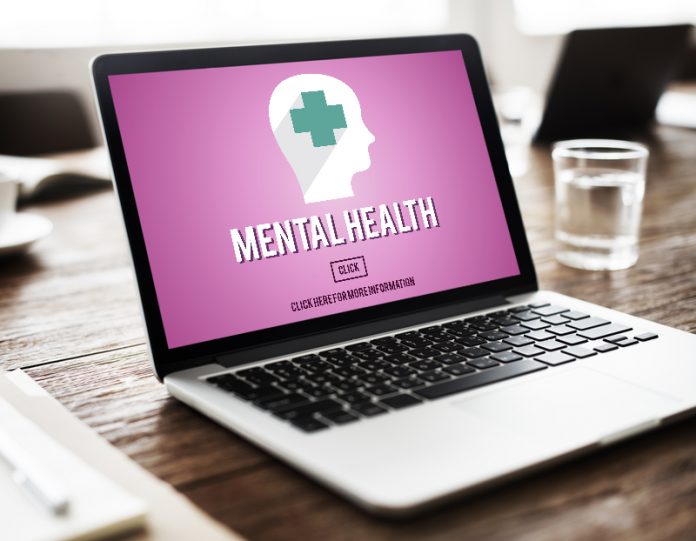Rosie Copland-Mann, Creative Strategist at Rehab, discusses how digital therapies for mental health treatment has evolved, with a special focus on COVID-19
Amidst the global COVID-19 pandemic, many have speculated around a ‘mental health pandemic’ simmering alongside in tandem. A recent survey of 1,300 mental-health doctors from across the UK found that 43% had seen a rise in urgent cases, while 45% reported a reduction in routine appointments – highlighting an obvious contradiction. In a year where mental health has been more important than ever, technology (long considered an enemy of mental health) saw a quiet revolution in how we deal with mental issues.
Therapy sessions
On top of the obvious change of therapy sessions switching to Zoom, many cutting-edge companies have responded exceptionally well to the opportunity the pandemic has presented. MindLabs is a great example – who have just raised their pre-seed funding in winter 2020. We like to think of them as the ‘Peloton for mindfulness’, offering live videos from trained professionals covering therapy, psychology and meditation – with an online community and analytics platform that allows users to track their current levels of stress or relaxation. Other big winners include sleep assistant Hatch, which combines a sunrise alarm, smart light, meditation app, and an alarm clock into one, as well as Woebot – a free app that acts as a self-care expert, drawing on CBT and DBT to help users deal with things like depression and anxiety problems. All of these companies have seen an exceptional rise in the last year.
The surge of such tech during COVID is a positive thing, but born out of a dark place – with mental health issues well-documented to be steadily on the rise. The reasons for this are obvious and relatable to all of us. We’re isolated and stuck at home, with our usual daily social interactions replaced with constant, unlimited exposure to catastrophized information. We’re all on tenterhooks waiting for the next announcement, with a big stress response building up whilst we wait for 5pm. We see people only through screens, not in the real physical world – and most will admit to feeling a loss of control of their lives, with the boundaries between work and normal life completely shattered. It’s no surprise – at all- that the demand for mental health treatment has risen. The good news is that there are some significant benefits that are now being realised about tech-led solutions.
One of the most obvious benefits is the increased ease of access. It takes significant effort to seek a service like therapy, and when you’re in a bad place – it can feel impossible to make it out of the home. Moving online, treatment can take place anytime and anywhere, which can help mental health providers offer treatment to people in remote areas or to many people in times of sudden need (e.g., following a natural disaster or terror attack). This is all helping to democratise the access to therapy – which can only be a positive thing. There also additional benefits in terms of more objective data collection, more consistent treatment across patients, and reduced costs to patients.
A less obvious outcome is that technology can actually aid one’s the ability to practice in treatments like meditation – contrary to what you might think. Meditation and mindfulness are skills that need to be honed and learned properly – with regular repetition. Allowing people more time in their day and allowing easier access to coaching can actually allow people to take up the practice much faster.
Social media
Technology is also helping significantly with the stigma around mental health. Social media is often vilified, but over COVID, a positive outcome has been that mental health messages and guidance has become extremely normalised on people’s feeds, and therapists have even taken to TikTok to give mental health advice. The importance and influence of this shouldn’t be understated, either. There’s a reason that a former love island star, Dr Alex George, has just been appointed UK Youth Mental Health Ambassador within the Department for Education.
With such promising advances made this year, it’s exciting to consider where the space will go next. For example, VR / AR exposure therapy sessions are some examples that are currently being explored and tested at universities – once considered only possible in science fiction.
At rehab, we see one of the biggest advancements being in preventative care, particularly when the possible applications of machine learning are considered. Some social media platforms have already begun exploring this with sentiment analysis conducted on posts – allowing them to spot people who might be in trouble. Soon, advice and treatment recommendations will be able to be sent directly, automatically, to the people who need it most.
We also anticipate companies operating on physical health showing an eager interest in the mental health space, as the link between the two becomes even more of a part of mainstream discourse. We mentioned earlier how MindLabs is like the ‘Peloton of mental health’, what if an exciting sportswear company like LuLu Lemon teamed with an innovative healthcare company like Novartis to create athletic clothing that tracks your mental state in real-time? Expect exciting partnerships like that to dictate the future of the industry.











